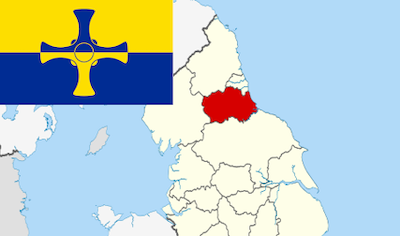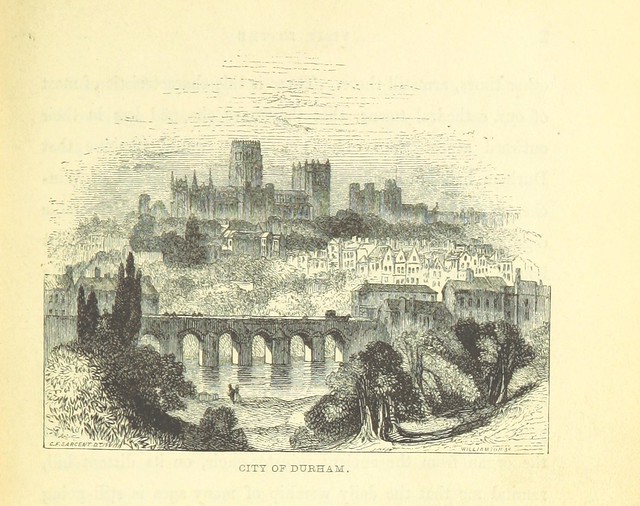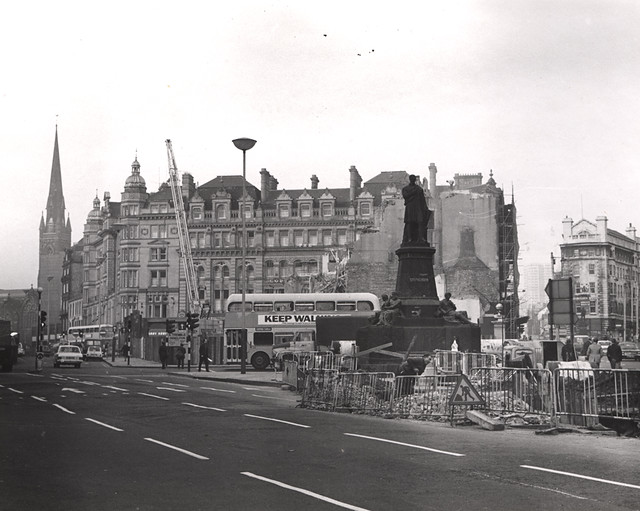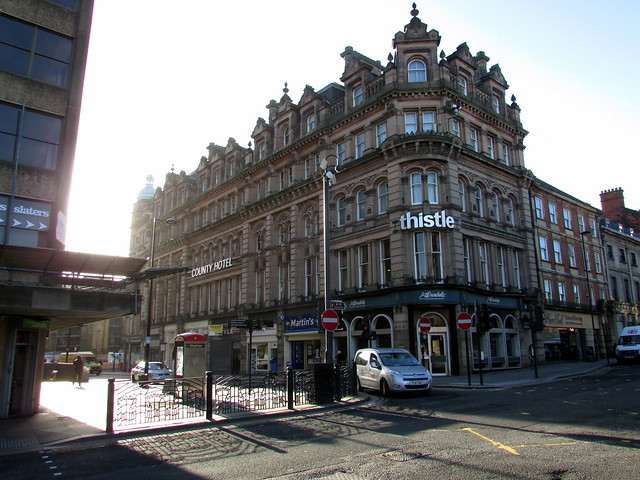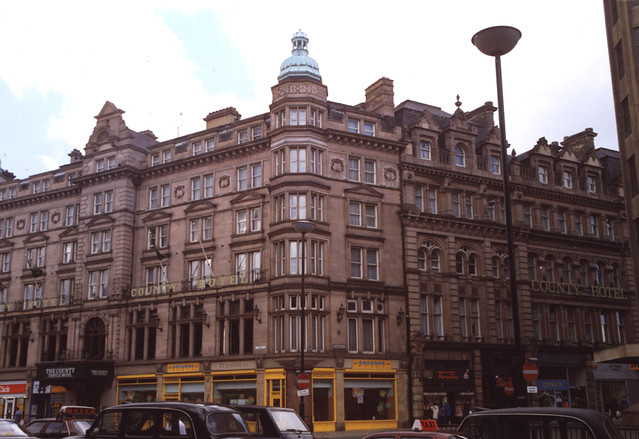Topics > County Durham > Durham (City) > Historical Accounts of Durham
Historical Accounts of Durham
From JG Bartholomew's Gazetteer of the British Isles (1905):
Durham, capital of the county, parliamentary and municipal borough, episcopal city, and market town, with railway. stations, North Eastern Railway, 14 1/2 miles South of Newcastle, 70 1/2 miles North of York, and 258 1/2 miles North of London by rail -- parliamentary borough, 969 acres, pop. 15,133; municiple borough, 884 acres, population 14,679. Market day, Saturday. Durham is situated on a rocky eminence (" Dunholme," "Duresme," "Durham,") nearly surrounded by the river Wear. It dates from the loth century, when the monks of Lindisfarne, after the ravaging of Holy Island by the Danes, rested there with the body of St. Cuthbert, and built a chapel for its reception. The present fine cathedral, containing the tomb of the Venerable Bede (died 735), dates from 1093. The castle, said to have been erected by William the Conqueror, became the chief residence of the bishops of Durham; it is now appropriated to the uses of the university. The university, founded by Cromwell in 1646, and dissolved after the Restoration, was re-established by Act of Parliament in 1833. Besides the university, the educational institutions comprise a grammar-school founded by Henry VIII, a diocesan trainingschool for schoolmistresses, blue-coat, and other schools. The only industries of any importance are a carpet factory and a large mill for the manufacture of "Durham mustard." In the vicinity are coal-mines. West of the town is Neville's Cross. Here the Scots were defeated (1346), and King David Bruce taken prisoner. Cardinal Wolsey and Butler (1693-1753), author of "The Analogy, were bishops. The borough returns 1 member to Parliament.
Extract above from: The Survey Gazetteer of the British Isles. Topographical, Statistical and Commercial. Compiled from the 1901 Census and the latest official returns. Editor JG Bartholomew. George Newnes Ltd. (1904). Some abbreviations in the original text have been expanded.

